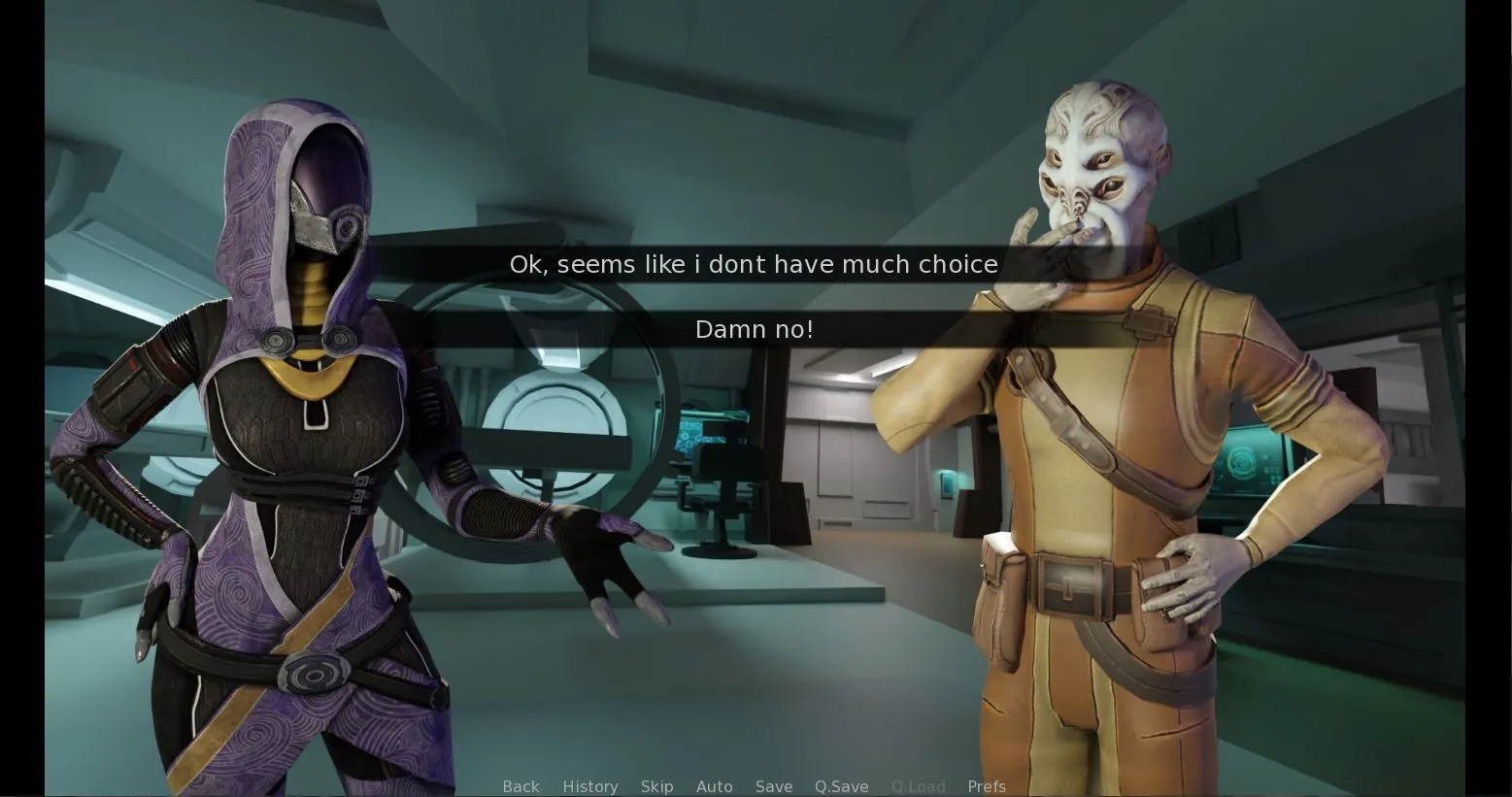
Sunshine Love
Play Sunshine Love
Sunshine Love review
Master every route, character interaction, and decision path in this narrative-driven experience
Sunshine Love stands out as a narrative-driven interactive experience that emphasizes player choice and consequence. This guide explores the game’s core mechanics, character development systems, and the various paths available to players. Whether you’re looking to understand the relationship dynamics, unlock specific scenes, or navigate the decision trees effectively, this comprehensive resource covers everything you need to know about maximizing your experience with the game’s branching storyline and character interactions.
Understanding Game Mechanics and Character Systems
Ever found yourself completely captivated by a character in a narrative game, only to have them shut down your advances because of some mysterious, hidden metric? 😩 I certainly have. In my first playthrough of Sunshine Love, I was sure I was on the perfect path with the artist, Leo. I picked all the supportive dialogue, gave him the perfect gift, and then… nothing. He friend-zoned me so hard I could have sworn I heard a digital door slam. 🤦♀️ That’s when I realized that mastering Sunshine Love game mechanics isn’t just about being nice; it’s about understanding a complex, invisible web of stats and relationships.
This chapter is your backstage pass to that system. We’re going to demystify exactly how the game tracks your every word and action, turning seemingly small choices into monumental shifts in your story. By the end, you’ll be able to navigate the emotional landscapes of your favorite characters with the precision of a seasoned captain, unlocking scenes and routes you didn’t even know existed. 🗺️✨
How Relationship Tracking Works
At its heart, Sunshine Love is a game about connections. But these aren’t just simple “like” or “dislike” meters. The character relationship tracking system is a sophisticated, multi-layered diary that records every interaction you have. Think of it as the game’s memory—it never forgets a compliment, a slight, a moment of vulnerability, or a failed joke.
The system works on two primary levels: visible affinity and hidden emotional states.
The visible affinity is what you can sometimes sense through character portraits and dialogue tones—a character might blush, smile warmly, or look away coldly. 🥰😶 This is your immediate feedback. However, the real magic (and complexity) lies in the hidden emotional states. Each major character has a set of core emotions—like happiness, reluctance, trust, and fear—that are constantly being adjusted behind the scenes.
Pro Tip: Don’t just spam the “nice” option. A character with high reluctance might see overt kindness as suspicious. Sometimes, a playful tease can lower their guard more effectively than a heartfelt compliment.
I learned this the hard way with Maya, the reserved bookworm. I showered her with praise about her intelligence, but her reluctance stat remained stubbornly high. It wasn’t until I started choosing dialogue that showed I respected her space and independence—even if it seemed a bit distant—that her trust began to grow. The game’s character relationship tracking noticed I was engaging with her core personality, not just a superficial version of her.
Every single dialogue choice, gift, and story decision is logged and cross-referenced against these emotional states. Did you agree to help a character with their problem? That might boost their happiness and trust. Did you pry too hard into their past? That could spike their fear and make them withdraw. This intricate web is what makes replaying Sunshine Love so rewarding; you’re not just picking different answers, you’re building entirely different emotional foundations for your relationships.
Character Stat Systems and Their Impact
If relationship tracking is the diary, then the stat system gameplay is the calculator that determines your fate. Each character’s emotional state is quantified into numerical values, and hitting specific stat thresholds is the key to unlocking everything from special scenes to entire Sunshine Love routes.
Let’s break down the core attributes you’re indirectly managing. These stats are unique to each character and are influenced by your choices.
| Character Attribute | Primary Effect on Gameplay | How Player Actions Modify It |
|---|---|---|
| Happiness | Unlocks positive interactions, opens up character backstories, and is essential for reaching “good ending” variants. | Choosing supportive dialogue, giving thoughtful gifts, completing character-specific tasks. |
| Reluctance | Acts as a barrier to intimacy; high values lock romantic options and personal conversations. | Reduced by consistent, non-pushy interactions. Increased by being overly forward, ignoring boundaries, or making certain story choices that create conflict. |
| Trust | Governs access to a character’s deepest secrets and most vulnerable scenes. Critical for the most narrative-rich paths. | Built by keeping promises, showing reliability in crises, and choosing empathetic options during their moments of doubt. |
| Fear | Can trigger avoidance behaviors, cause characters to lie, or lead to abrupt scene endings. | Spiked by aggressive questioning, forcing confrontations, or making choices that align with a character’s specific phobias or traumatic history. |
Understanding this stat system gameplay is what separates casual players from masters. For example, to unlock a late-game scene where a character confesses a deep secret, you might need their Trust to be above 80 and their Fear to be below 20. If you’ve been raising their Happiness with jokes and gifts but ignoring opportunities to build Trust, you’ll hit a narrative wall. 🧱
The concept of character happiness reluctance is a perfect illustration of this delicate balance. You can’t just maximize one stat. With a character like Alex, who has a jaded past, high happiness might be easy to achieve through fun outings, but without simultaneously lowering their reluctance through patient, trustworthy actions, you’ll only ever be their “fun friend.” The game brilliantly forces you to engage with the whole person, not just the parts you find appealing.
Decision Consequences and Route Branching
This is where all the systems converge into a spectacular display of narrative possibility. The decision consequences branching in Sunshine Love is not a suggestion; it’s the law of the land. 🌳➡️🌲 Every choice, from the monumental “Who will you spend the festival with?” to the seemingly trivial “What will you order for lunch?” feeds into the game’s algorithm, gently nudging you onto one of many Sunshine Love routes.
The branching isn’t always immediate. This is a crucial point. An early decision in Chapter 2 might not reveal its significance until Chapter 5, when you find a door locked that was open in a previous playthrough, or a character refuses to help you because of a forgotten slight. This creates a fantastically organic and sometimes frustratingly realistic experience.
Let me give you a concrete example from my own gameplay. In one run, I decided to be pragmatic and side with the town council on a development project early on. It seemed like a harmless, “greater good” choice. Fast forward several hours, and I was pursuing the route of Sam, an environmentalist. I reached a critical romantic scene, only for it to be completely unavailable. Why? My early council decision had permanently lowered Sam’s hidden “Alignment Approval” stat below the required threshold. The decision consequences branching had silently closed off that path hours before I even knew it was a problem. 😱
This is the core of how to unlock scenes and routes. It’s not about a single perfect choice, but about maintaining a consistent character and understanding the values of the person you’re trying to connect with.
Here’s a practical breakdown of how to approach this:
- Identify Core Values: Early on, listen carefully to what each character prioritizes. Do they value honesty above all? Family loyalty? Personal freedom? Your major story decisions should reflect the values of your chosen character.
- Consistency is Key: The game’s memory is long. If you’re kind to a character one day and dismissive the next, it creates conflicting stat modifications that can leave you in a “friend zone” limbo.
- Save Strategically: Before any major story event or choice that feels significant, create a new save file. This is your single best tool for experimenting with decision consequences branching without committing to a 20-hour replay.
- Watch for Flags: Major route branches are often triggered by “flags”—specific combinations of stats and choices. Getting an invitation to a character’s private space is often a soft confirmation that you’re on the right track for their route.
Mastering this system allows you to see the incredible breadth of Sunshine Love routes. There aren’t just “good” and “bad” endings. There are nuanced endings based on the specific emotional state you’ve cultivated: a ending where two characters overcome their fears together, one where they find happiness in a simple, quiet life, or another where they pursue ambitious dreams together. The stat system gameplay and character relationship tracking are the tools that let you author these distinct stories.
Frequently Asked Questions
Q: I missed a scene I saw in a video online. How do I find it?
A: This almost always comes down to missing a stat threshold. Scenes are gated behind specific values in attributes like Trust or Happiness. Replay the chapters leading up to it and make different choices that specifically target the required stat. Check your dialogue options for chances to be more vulnerable or supportive, depending on what you’re lacking.
Q: Can I max out all relationship stats with every character in one playthrough?
A: Absolutely not, and that’s by design! 🚫 The Sunshine Love game mechanics are built around meaningful choice. Investing deeply in one relationship often means neglecting or even damaging another. This mirrors real-life relationships and is what makes each playthrough unique. Focus on one or two characters per run for the best experience.
Q: How early do I need to commit to a specific route?
A: While you can be friendly with everyone at the start, major Sunshine Love routes typically start branching after a key communal event in the mid-game (often a festival or a group trip). However, the foundation for that branch is laid from the very first interactions through the character relationship tracking system. Your “commitment” is shown through the cumulative points you’ve earned.
Q: I made a choice that lowered a stat I care about. Is it possible to recover?
A: Yes, in most cases! 👍 The stat system gameplay is fluid. While some major story choices have permanent effects, general affinity can be repaired over time through consistent, positive interactions. If you hurt a character’s trust, subsequent choices that demonstrate reliability will slowly build it back up. Just be patient and understand that one mistake isn’t always a dead end.
Ultimately, understanding the Sunshine Love game mechanics transforms the experience from a passive story into an active, engaging puzzle. It empowers you to not just witness these beautiful narratives, but to truly shape them, crafting a unique tale of connection and Sunshine Love with every single choice you make.
Sunshine Love offers a rich interactive experience where player choices genuinely shape the narrative and character relationships. Understanding the stat systems, character preferences, and decision consequences allows you to navigate the game’s branching paths effectively. Whether you’re pursuing specific character routes, unlocking premium content, or experiencing multiple playthroughs, the strategies and information covered in this guide provide a foundation for maximizing your engagement with the game. The depth of the relationship tracking system and consequence mechanics rewards careful decision-making and encourages exploration of different approaches. Take time to experiment with various dialogue choices and actions to discover the full range of content available, and don’t hesitate to replay sections to experience alternative outcomes and character interactions.
















